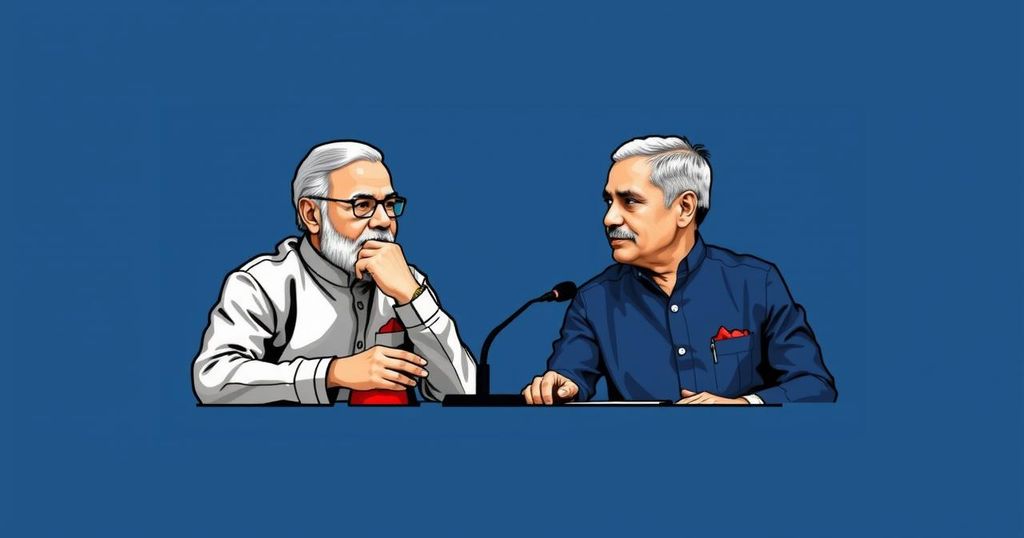India’s Strong Rejection at COP29 Highlights Global Finance Inequities

COP29 ended in disagreement as India rejected a climate finance deal, labeling it inadequate for developing nations while developed countries celebrated the outcome. India criticized the $300 billion annual funding goal as insufficient and emphasized the need for equitable financial responsibilities in addressing climate change. The rejection has echoed through various developing nations and organizations, raising significant concerns over the trust and collaborative spirit in international negotiations on climate finance.
The conclusion of COP29 in Azerbaijan witnessed significant discord, particularly as India led a vehement rejection of the newly proposed climate finance agreement, which it characterized as insufficient for the needs of developing countries. While developed nations celebrated the adoption of the climate finance deal, India firmly asserted that the agreement inadequately prioritized the requirements of the Global South. Following its rejection, other developing nations echoed India’s concerns, highlighting the urgent need for a more substantial commitment to climate finance.
At the heart of the dispute was the New Collective Quantified Goal (NCQG) related to climate financing, with India’s negotiator, Chandni Raina, articulating profound disappointment over the agreement. The proposed climate finance goal, set at a mere $300 billion annually starting in 2035, was denounced as paltrily inadequate to meet the escalating climate challenges faced by developing nations. The hastily passed resolution was seen as a disregard for fair negotiation processes, prompting widespread criticism from multiple delegations.
The context of COP29 is deeply intertwined with ongoing global climate challenges, particularly the urgent need for enhanced financial support for developing countries, which historically contribute the least to carbon emissions but face the most significant impacts. As discussions of climate finance evolve, themes of trust, accountability, and collaboration remain central to negotiations, with many stating that the current framework falls short of what is necessary to address the climate crisis effectively.
Critical reflections arose regarding the proposed funding method, which appeared to allow flexibility for developed nations to shift their financial commitments onto developing nations, thereby undermining the principle of equitable responsibility in climate action. Such perceived injustices led to global appeals for a more responsible and committed approach from the developed nations, which have historically benefitted economically from fossil fuel consumption.
In a stark contrast to the sentiments expressed by the Global South, developed countries hailed the agreement as a step forward in climate financial governance, emphasizing their commitment to increase contributions and reform financing frameworks. However, critics maintained that accountability remains a concern as commitments lack transparency and feasible implementation timelines, especially as multilateral development banks were set to play a more significant role moving forward.
The nature of the negotiations and the rush to adopt the resolution drew scrutiny, with several representatives arguing that a genuine collaborative effort is necessary to address the critical challenges faced by the global community. They asserted that it is imperative to build trust through transparent negotiations rather than pass decisions that marginalize the voices of developing countries.
The backdrop of the COP29 meeting centers on the ongoing efforts to address the global climate crisis, particularly highlighting the distinct financial needs of developing nations in the face of climate change. Historically, developing countries have called for more substantial commitments from developed nations to facilitate their transition to renewable energy sources and to equip them to deal with the adverse effects of climate-related disasters. The contentious atmosphere generated at COP29 illustrates the broader tensions between the Global North and Global South regarding climate finance and the responsibilities of wealthier nations to support vulnerable countries.
In summary, COP29 ended on a note of discord as India led objections to a climate finance proposal deemed inadequate for supporting developing countries. The event underscored the chronic imbalance in climate negotiations, revealing a rift between the ambitions endorsed by developed nations and the urgent needs expressed by developing nations. This division casts a shadow on future climate agreements, as trust issues and the integrity of international negotiations remain unresolved, emphasizing the need for more substantive actions. The outcome raises critical questions about accountability and the sincerity of commitments made by developed nations to genuinely support the climate action goals of developing nations.
Original Source: www.hindustantimes.com






